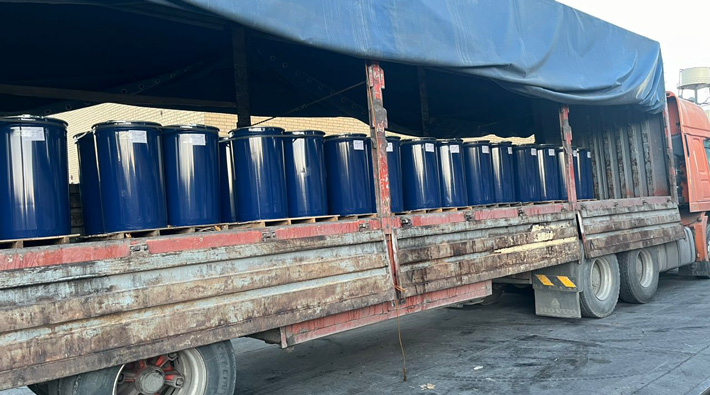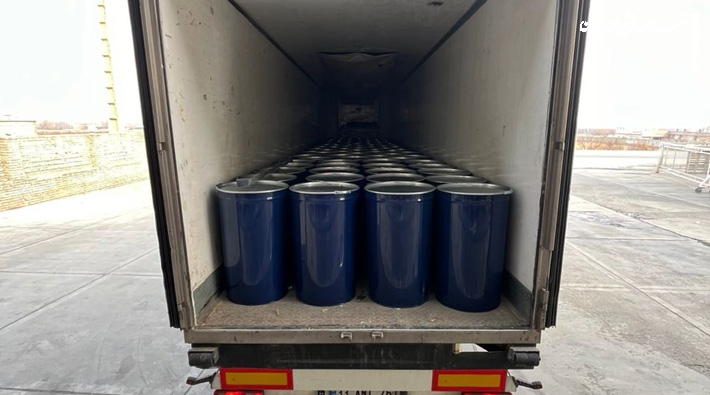to report «iusnews»; Iran, with its diverse climate and fertile lands, plays a significant role in the global food and agriculture market. This report provides an overview of Iran's agricultural and food exports, including key products, export destinations, and relevant statistics. The primary data source is the Islamic Republic of Iran Customs Administration (IRICA).
Iran's Agricultural Exports
Iran's agricultural exports demonstrate strong performance. Key export products, ranked by dollar value, are:
- Pistachios (and Kernels): $1,466,151,139
- Tomatoes: $386,309,523
- Dates (Various Types): $364,657,529
- Fresh Apples: $352,430,677
- Dried Grapes (Raisins): $231,797,558
- Fresh Watermelon: $167,663,429
- Saffron: $161,232,005
- Onions: $151,119,390
- Potatoes: $107,568,865
- Fresh Kiwi: $101,004,961
Iran's Agricultural Technology
Iran's agricultural sector combines traditional farming practices with modern technologies. While traditional methods remain prevalent in many rural areas, there is increasing adoption of modern techniques, such as hydroponic greenhouses, particularly for high-value crops. This dual approach enables Iran to produce a wide variety of agricultural products for both domestic and international markets.
Iran's Food Exports
Beyond raw agricultural products, Iran exports a range of processed and value-added food products. Key export products in the processed food sector, ranked by dollar value, are:
- Tomato Paste: $115,969,028
- Fruit Juices (Various): $106,767,087
- Confectioneries (without cocoa): $95,854,189
- Breads (Various): $91,624,462
- Pasta Products (Other): $85,459,889
- Sweetened Biscuits: $68,792,055
- Active Yeasts: $61,698,669
- Ice Cream and Edible Ices: $42,506,243
- Chocolate (Other): $38,273,409
- Waffles and Wafers: $32,625,561
A notable example of a value-added product is fruit concentrate. Iranian suppliers and manufacturers, such as Tarazfoods, are actively involved in exporting high-quality fruit concentrates in aseptic packaging to various international markets. TarazFood also exports fruit purees and natural fruit juices. This highlights the growing sophistication of Iran's food processing industry.

Iran's Top Non-Oil Export Products (Ranked by Value)
Based on IRICA data, Iran's top 20 non-oil export products, ranked by dollar value, are:
- Light Oils & Preparations: $885,536,190 (Excluding gasoline)
- Agglomerated Iron Ore: $810,269,314 (Excluding roasted iron pyrites)
- Unwrought Aluminum: $736,716,404 (Not alloyed)
- Open-Shell Pistachios: $672,391,738
- Other Petroleum Products: $604,862,999 (70% or more petroleum/bituminous mineral oils)
- Film Grade Polyethylene: $545,129,487 (Specific gravity of 94% or more)
- Aromatic Hydrocarbons: $518,218,885 (65%+ distills at 250°C, ASTM D86)
- Steel Semi-finished Products: $513,041,612 (Rectangular, >200mm thick, <0.25% carbon)
- Iron Ore Concentrates: $484,307,598
- Steel Pipes/Profiles: $434,389,844 (Seamless, alloy steel, non-circular cross-section)
- Mineral Base Oil: $427,609,340
- Blown Grade Polyethylene: $427,591,165 (Specific gravity of 94% or more)
- Ethylene Glycol: $419,522,832
- Coal Tar Distillation Products: $413,199,523
- Pistachio Kernels: $410,046,154 (Fresh or dried)
- Refined Copper: $388,153,789
- Unwrought Zinc: $379,604,767 (99.95% to 99.99% zinc content)
- Polyethylene Compound (Wire/Cable): $361,811,214 (<94% density, excluding powder)
- Steel Semi-finished Products: $337,656,167 (Square/rectangular, width < 2x thickness, >200mm thick)
- Industrial Dried Milk: $331,646,620 (From cows, >1.5% fat content)
Iran's Top Export Destinations
Iran's top export destinations, based on IRICA data, are:
- China: $13,801,522,965
- Iraq: $11,180,465,511
- United Arab Emirates: $6,640,693,866
- Turkey: $6,384,360,706
- Afghanistan: $2,202,698,085
- Pakistan: $2,181,890,637
- India: $1,789,466,005
- Oman: $1,426,073,785
- Russian Federation: $997,282,660
- Republic of Azerbaijan: $635,403,443
- Turkmenistan: $521,222,867
- Armenia: $449,345,616
- Uzbekistan: $367,962,465
- Brazil: $362,649,330
- Indonesia: $344,488,803
- Tajikistan: $267,943,452
- Ghana: $261,524,094
- Kazakhstan: $254,450,147
- Kuwait: $226,734,651
- Georgia: $208,645,375
Iran's Food Imports
Iran's imports largely consist of essential goods and industrial inputs. Key food imports include rice, wheat, and animal feed, reflecting the country's need to supplement domestic production in these areas.
Iran's Food Exhibitions
Iran hosts several major international food and agriculture exhibitions annually. The most prominent is Iran Agrofood, held in Tehran. Iran Agrofood attracts hundreds of domestic and international companies and thousands of visitors each year, providing a platform to showcase the latest products and technologies in the food and agriculture industry. Some Iranian brands also participate in international events like Gulfood in Dubai. These exhibitions contribute significantly to the sector by:
- Facilitating trade deals
- Showcasing innovations
- Networking and collaboration
- Providing market insights
- Enhancing brand exposure
Outlook
Iran's food and agricultural export sector is expected to maintain its growth trajectory. Factors contributing to this positive outlook include government support for the agricultural sector, ongoing investments in modern technologies, and increasing demand for Iranian products in key international markets. However, challenges such as water scarcity and international sanctions must be addressed to ensure sustainable long-term growth.



